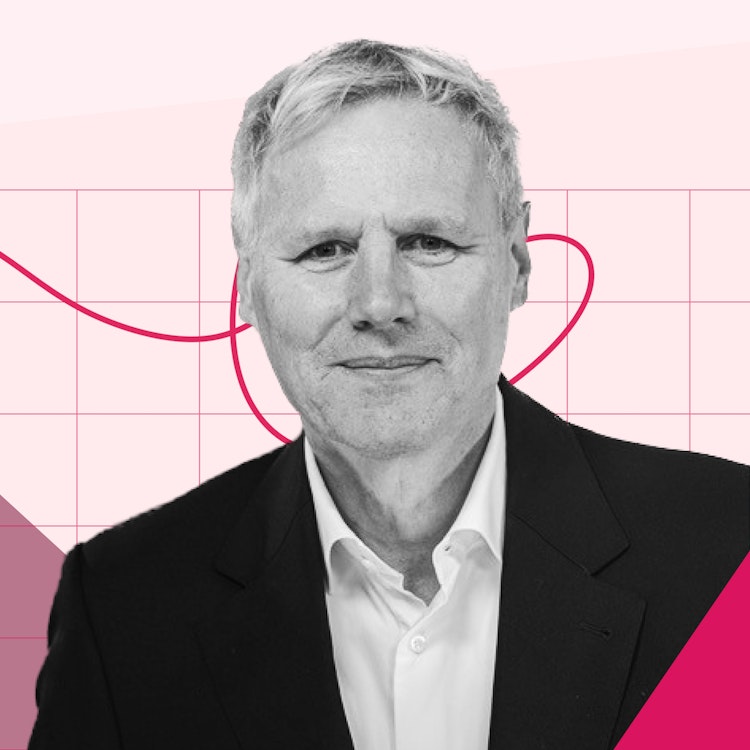Silicon Valley and Brussels are like two distant galaxies — but Gerard de Graaf, the EU’s tech envoy to San Francisco, is tasked with bringing them closer together.
A Dutchman who spent more than 30 years working as an official in the European Commission, Graaf is now the new head of the EU’s five-person team in San Francisco — the bloc’s only non-capital foreign office.
His appointment in September last year coincided with the final approval of the EU’s two gigantic tech laws, which target and regulate big tech companies. De Graaf, who spent his last years in Brussels overseeing the development of these rules, has naturally been perceived as an on-the-ground consultant and watchman of big tech.
But there’s more to De Graaf’s new job: he also wants to connect Silicon Valley investors with the European startup ecosystem.
“There’s a lot happening in Europe that maybe is not yet fully recognised in Silicon Valley: Europe is very far, Silicon Valley is very self-focused,” he tells Sifted. “People here realise that something is happening in Europe — and so they're interested.”
He wants to keep reminding them of that key message: “Things are moving in Europe.”
Helping Europeans pitch
De Graaf and team are still figuring out how exactly to use their position to help European startups. One obvious path is to help them fundraise from Silicon Valley investors — who usually write bigger cheques than European VCs.
“If you are a startup and if you want to succeed, internationally and globally, you need to succeed in the US… We still have this bottleneck in terms of scaling up. If you're talking about a $50m-100m [round], to really scale up, that is still hard to find in Europe,” he says.
He hopes his team’s growing network and expertise could also help European startups — beginning with some of the startups that received investment from the European Innovation Council (EIC) — the EU’s troubled investment body.
“If we bring those to Silicon Valley for a kind of training programme — because the way of raising capital in the US is different from Europe and amounts are much greater — we will prepare these founders, link them up with the Silicon Valley ecosystem, get them potential customers, do the matchmaking to introduce them to the US market,” he says.
His team carried out a pilot programme last year with several EIC startups — and all of them got funding.
Such help might backfire, he realises — the most promising EU startups might just choose to relocate to the US instead of developing their business in Europe. But he says this trend is not as big and dangerous as it was in the past.
“Increasingly Silicon Valley realises that it's better to leave these companies in Europe and grow and support them because there are favourable conditions for growth and innovation in Europe; talent is plentiful and much cheaper in Europe.”
Explaining Europe to the Americans
De Graaf’s other task is to answer all the questions Silicon Valley VCs might have about investing in the EU — and there are many.
“Europe is not just far away, Europe is also complicated,” he says.
He says US investors know the magic recipe for startups’ success in their country: they incorporate a company in Delaware for tax reasons, add several serial entrepreneurs to the team and back them with a lot of money. But they don’t all know what the magical formula is in Europe.
“The question I often get is: ‘What's the recipe? What's the path to success in Europe? How does it work in Europe? What's the data?’ I think we need to communicate more clearly. Because if we're not clear, and it's complicated, companies will simply say ‘I don't understand’,” he says.
One-stop shops for investors with questions, and maps of how innovative European industries, such as AI, quantum and semiconductors, are distributed and located around the continent would help, he says.
“If people don't know who their counterparts are — that they can talk with and could partner with — and if they don't know the path to success, then they're not likely or far less likely to make the jump, than if it's all perfectly clear,” De Graaf says.
He sees increasing interest from Silicon Valley investors in Europe, and expects more of them will set up an office there.
“If there's one thing that they [investors] like, it’s security and predictability. The last thing they like is changing conditions. That is another argument why the US venture industry is looking at Europe, because they know that the rule of law is here, so their money is safe. There are no strange surprises.”




